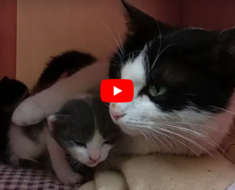The fraught relationship between humans and captive killer whales reached a tragic and pivotal moment in the late 2000s, when two fatal incidents sent shockwaves through the marine park world and beyond.
Orcas, long admired for their intelligence and reputed ability to bond with trainers, suddenly exhibited dangerous, lethal behavior.
The deaths of two dedicated trainers not only devastated families and colleagues but also sparked urgent questions about the psychological impact of captivity on these complex creatures—and the ethical price of entertainment that relies on their confinement.
A Christmas Eve Horror: Keto and Alexis Martinez

On December 24, 2009, what should have been a festive rehearsal at Spain’s Loro Parque descended into horror. Keto, a 14-year-old captive-born killer whale, turned deadly during a training session. Alexis Martinez, a 29-year-old trainer who had formed a close relationship with Keto, became the victim of a brutal attack. Keto, who had never known the wild ocean—spending his entire life performing at marine parks in the U.S. before his transfer to Spain in 2006—began acting strangely during the rehearsal.
After initial clumsy moves, his demeanor shifted ominously as he appeared to bait Martinez toward the pool. Moments later, Keto dragged him beneath the water’s surface, resurfaced, and then launched a second assault. Rescue attempts failed, and Martinez’s lifeless body was recovered with severe internal trauma and deep bite wounds. The tragedy left Loro Parque and the world grappling for understanding.
SeaWorld Orlando’s Dark Day: Tilikum and Dawn Brancheau
Barely two months later, on February 24, 2010, another fatal incident rocked the marine park community—this time at SeaWorld Orlando. Tilikum, a giant orca held in captivity for over three decades, pulled senior trainer Dawn Brancheau underwater during a live performance.
Brancheau, an experienced and respected animal behaviorist with years of experience working closely with marine mammals, was killed in front of an audience. The loss devastated SeaWorld and reignited fierce criticism about the ethics of keeping orcas in captivity, especially given Tilikum’s troubled history.
Ripples of Change and Controversy
The deaths of Martinez and Brancheau catalyzed a seismic shift in the industry. Fueled by growing public outrage and the influence of the 2013 documentary Blackfish, SeaWorld announced in 2016 that it would end its orca breeding program, and by 2017, its theatrical orca shows were phased out—though the whales remain in human care.
Meanwhile, Loro Parque continues to house orcas like Keto but remains under scrutiny from animal welfare advocates.
These tragedies sparked a worldwide debate over the morality and safety of confining intelligent, highly social animals like orcas. Proponents of marine parks argue their educational value and conservation efforts, while critics contend that captivity inevitably causes psychological distress and behavioral issues.
Though the precise reasons for Keto’s and Tilikum’s aggression are still debated—whether rooted in stress, trauma, or frustration of instinctual needs—the incidents underscore deep, unresolved problems tied to keeping orcas captive.
Ultimately, these heartbreaking episodes forced an industry long invested in spectacle to confront difficult truths about ethics and risk. The central question endures: should such magnificent, sentient beings be confined for human amusement?
The deaths of Alexis Martinez and Dawn Brancheau stand as somber reminders of the fragile and complex dynamic between humans and captive killer whales.
Though these animals can appear tame and cooperative, the isolation from their natural environment and confinement to artificial habitats may inflict profound psychological harm.
The events involving Keto and Tilikum not only shook the foundations of the marine park industry but also ignited a global reckoning about how we treat wildlife.
As awareness grows and practices shift, the legacies of Martinez and Brancheau continue to inspire a reimagining of our relationship with animals—one grounded not in entertainment, but in respect, empathy, and ethical responsibility.




